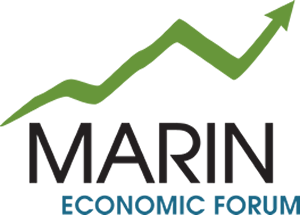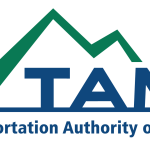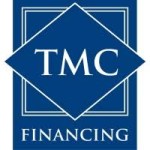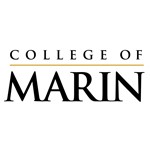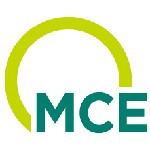Marin Economic Forum launches business retention project
Marin Independent Journal
By Richard Halstead
Before Nucleo Life Sciences relocated from San Francisco to San Rafael in the summer of 2016, cofounders Mark Menning and Lara Park Menning had considered other locations throughout the Bay Area.
“We were really looking for a place where we could grow and our employees could get a nice life-work balance as well,” said Lara Park Menning, whose pharmaceutical company employs 15 people, 10 of whom are based in San Rafael.
It is companies like this that the Marin Economic Forum hopes to keep in Marin by launching a countywide business retention and expansion project this week.
“We’ve done a good job starting excellent companies here,” said Marin Economic Forum CEO Mike Blakeley. “But Marin can be a challenging place for them to continue to grow.”
Marin County is providing $87,000 to fund the project. In addition to that, the forum, which grew out of the Marin Economic Commission, received a grant of $150,000 from the county to help support its operations during the fiscal year that ends in June.
Most years, the forum matches that grant through member sponsorships and revenue generated by producing economic reports for other entities. Blakeley says the forum has 39 active board members.
The forum is working with a number of local partners on the project: several local chambers of commerce, the Latino Council, the Agricultural Institute of Marin, the Small Business Development Center at Dominican University, the Marin Builders Association and VenturePad in San Rafael.
“Over the next six months, we’ll be gathering information through focus groups and interviews; later in the fall we’ll be putting out a survey,” Blakeley said. “Then with our partners we’ll be working until the end of the year to develop a set of actions that can be pursued in 2020.”
Blakeley said recommendations will be concrete and actionable.
“These actions aren’t going to be recommendations that reside in some report,” he said.
In his blog this month, Blakeley analyzed data on the concentrations of various types of occupations and industries in Marin. The occupations with the highest concentration in Marin were in the field of “arts, design, entertainment, sports and media.”
“That would please most residents,” he wrote. “However, that occupation also has one of the lowest median hourly wages at $21.81 — just above the level of a ‘livable wage’ for Marin.”
In the same blog, Blakeley also pointed out that Marin’s concentration of occupations in the fields of “computer and mathematical” and “healthcare practitioners and technical” are below the national average.
“That is a surprise to most Marin residents,” Blakeley said.
These two occupations boast wages that exceed $42 an hour, among the highest median hourly wages.
Earlier this month, in a guest editorial published in the North Bay Business Journal, Blakeley cataloged some troubling signs about the direction of the Marin economy. Most of them had to do with the size of Marin’s workforce.
For example, Blakeley noted that with an unemployment rate just above 2 percent, it is hard for Marin employers to retain and add staff. He pointed out that 60 percent of Marin County’s workforce commutes in daily and that number is continuing to grow.
“A larger and more skilled workforce is going to be required for Marin businesses to stay competitive and grow,” he wrote.
Jeff Scharosch, general manager of the Spinnaker restaurant in Sausalito and a member of the forum’s board, said finding qualified employees is definitely a problem for Marin businesses in the hospitality sector.
“There are applicants out there,” Scharosch said, “but they’re not qualified for entry level management positions.”
Before she resigned last year, Blakeley’s predecessor, Robin Sternberg, began to advocate for more workforce housing as a way of addressing Marin’s labor shortage and racial inequality.
Sternberg called on the county and its 11 cities to create a long-range economic development and housing plan that would include a comprehensive map of developable sites. She also recommended that support for housing developers be provided by streamlining the local permitting process and that a campaign be mounted to build public support for housing creation in Marin.
A quasi-governmental entity, Marin Economic Forum is tasked with fostering economic growth in the county while also protecting the environment and promoting equity.
To date, Blakeley has not shown the same willingness to advocate for new housing development, although he says, “We know that housing is a problem. We recognize it is an issue that is constraining the economy. All the data that we review regularly shows that.”
Cecilia Zamora, executive director of the Latino Council of Marin and president of the Hispanic Chamber of Commerce of Marin, wrote in an email, “There was a time when we had an active business voice in the Workforce Housing Consortium under the leadership of Elisa Giambastiani, former CEO of the San Rafael Chamber. In that sense, I think Robin was on the right track.”
But Zamora also wrote, “The approach that MEF is taking under Mike’s leadership is very innovative.”
Coy Smith, CEO of the Novato Chamber of Commerce and chairman of the Marin Council of Chambers, wrote in an email, “For the local cities and Chambers to have more resources and information about what our businesses want and need can only help keep them happy and keep them in Marin.”
Be the first to receive updates and news from MEF by subscribing or liking us on our social media pages: Facebook, Twitter, and LinkedIn!
Tags: news
